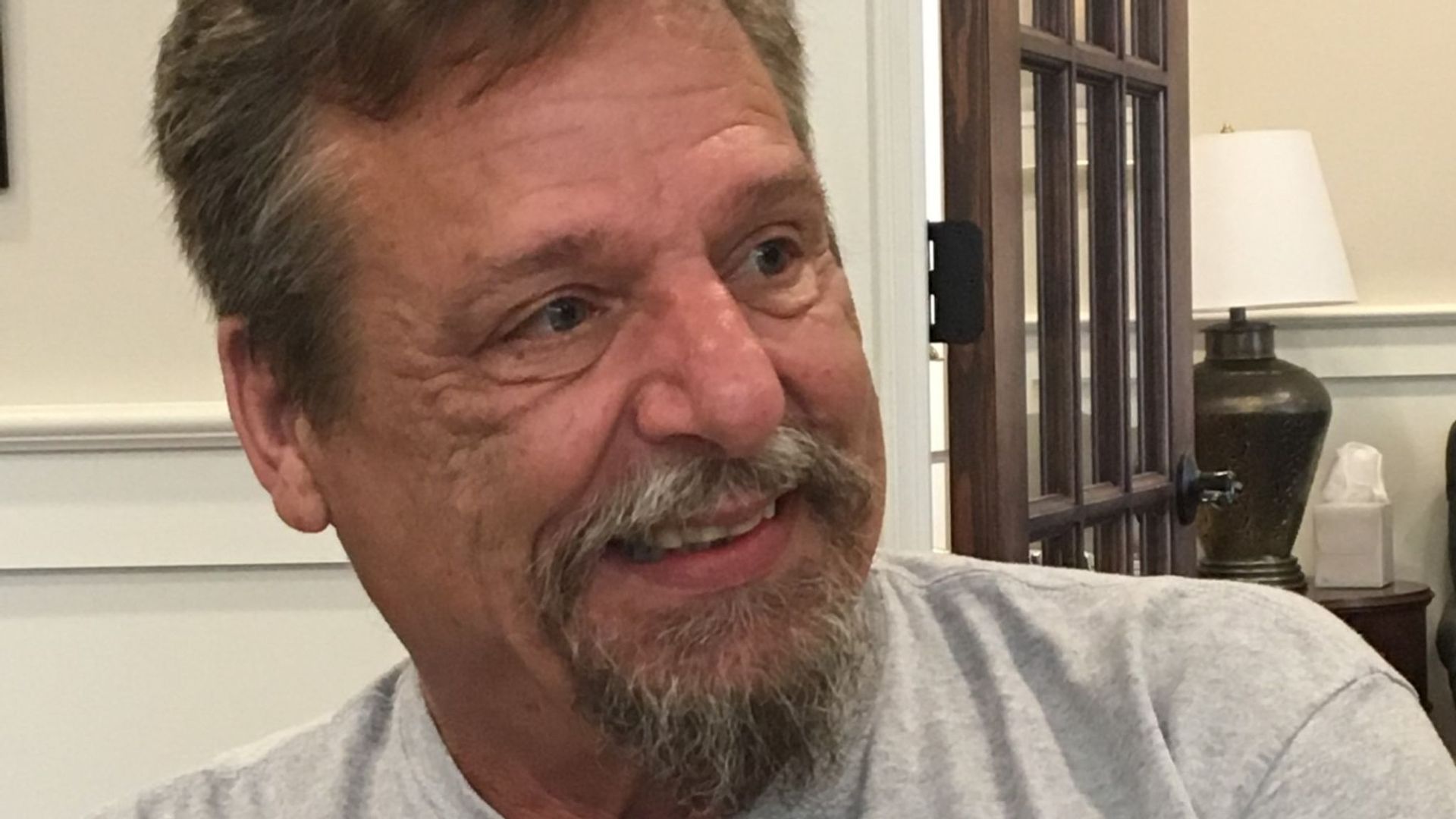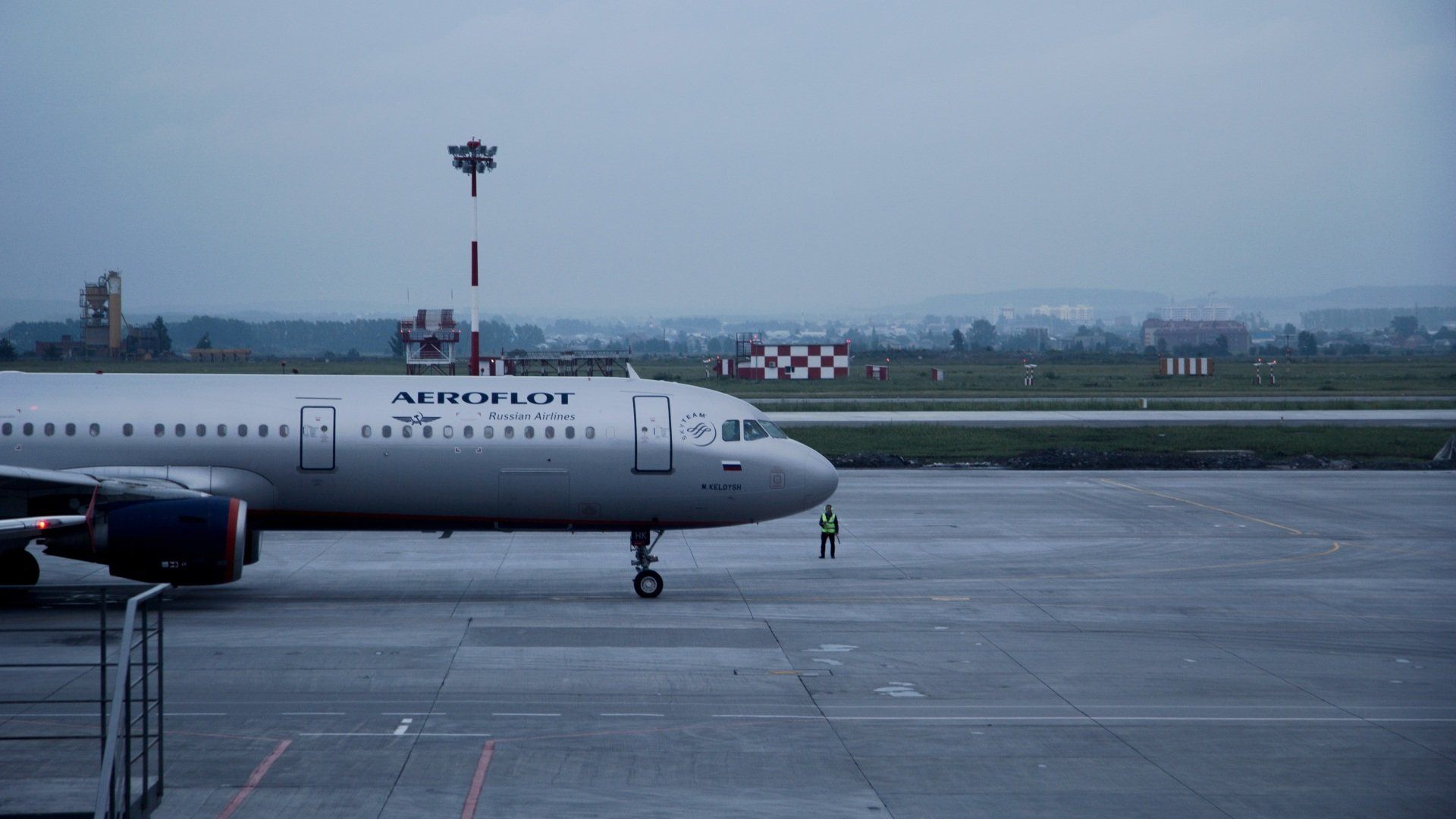Let's talk about your case
You can schedule a call with one of our lawyers anytime. Call today and get the help you need.
Or fill out our online form, and we will respond within 24 hrs.
Boeing Whistleblower Dead: John Barnett's Tragic End
Tragic End: Boeing Whistleblower Dead

Key Highlights
- Former Boeing employee and whistleblower John Barnett was found dead in South Carolina, reportedly from a self-inflicted gunshot wound.
- Barnett had worked at Boeing for 32 years and had raised serious concerns about safety issues with oxygen systems and the use of sub-standard parts on Boeing aircraft.
- He had filed a whistleblower retaliation case against Boeing and was in the midst of a deposition when he died.
- The circumstances surrounding Barnett's death are currently under investigation by the Charleston police.
- Barnett's death has drawn intense scrutiny and has raised questions about the treatment of whistleblowers in the aviation industry.
- Boeing has issued a statement expressing sadness over Barnett's passing and stating that the company's thoughts are with his family and friends.
Introduction
The aviation industry has been rocked by the tragic death of former Boeing employee and whistleblower, John Barnett. Barnett, who had worked at Boeing for 32 years, was found dead in South Carolina, with authorities confirming that he died from what appears to be a self-inflicted gunshot wound. His death comes as he was in the midst of a deposition in his whistleblower retaliation case against Boeing, as stated in a news release from the Charleston County Coroner's office on Monday. The news release also stated that Barnett's death is being investigated as a possible suicide.
The Life and Career of John Barnett
John Barnett was a quality manager at Boeing's North Charleston plant, where the 787 Dreamliner was manufactured. He had dedicated over three decades of his life to the company, but it was during his tenure as a quality manager that he became a whistleblower. Barnett had uncovered serious problems with the oxygen systems on the long-haul jet, raising concerns about the safety of the flying public on the production line. Sadly, in 2021, Mr. Barnett was found dead in the US, leaving behind a legacy of bravery and dedication to ensuring the safety of aircraft on the production line, including his discovery of metal shavings near flight control systems.
Known for his honesty and integrity, Barnett believed in ensuring the highest standards of quality and safety in aircraft production. He had alerted his managers to his concerns, but no action was taken. Barnett's dedication to his job and his commitment to protecting the flying public made him a highly respected figure within the company and the industry. In a joint statement, Barnett's lawyers, Robert Turkewitz and Brian Knowles, told CBS News that Barnett was "a brave, honest man of the highest integrity" and that he cared deeply about his family, friends, and colleagues at Boeing. However, his untimely death has raised questions and concerns about the company's handling of his whistleblowing and the importance of addressing safety concerns in the industry.
John Barnett’s Role at Boeing

As a quality manager at Boeing's North Charleston plant, John Barnett played a crucial role in ensuring the safety and quality of the aircraft being produced. He was responsible for overseeing the manufacturing process and identifying any potential issues or defects, acting as the last line of defense before a defect could make it out to the flying public. During his time at Boeing, Barnett became known for his meticulous attention to detail and commitment to upholding the highest standards of quality, making him a vital player as the last line of defense for the safety of the flying public.
However, it was Barnett's role as a whistleblower at Alaska Airlines that brought him into the spotlight. He bravely spoke out about the safety concerns he had discovered with the oxygen systems on the 787 Dreamliner. His allegations raised serious questions about the company's commitment to passenger safety and its handling of quality control issues, ultimately leading to the grounding of all Boeing 737 Max 9 planes operated by Alaska Airlines. A preliminary report from the National Transportation Safety Board suggested that four key bolts were not fitted, and the incident is under investigation from the Federal Aviation Administration and the Justice Department.
Barnett's efforts to bring attention to these concerns ultimately led to a whistleblower retaliation case against Boeing. His dedication to speaking the truth, despite the potential consequences, made him an advocate for accountability and transparency within the aviation industry.
Key Whistleblowing Moments
- Barnett raised concerns about serious problems with the oxygen systems on the long-haul Boeing 787 Dreamliner.
- He alleged that sub-standard parts were being fitted to planes to avoid production delays, compromising passenger safety.
- Barnett's allegations highlighted a "disconnect" between Boeing's senior management and workers, with concerns of retaliation for whistleblowers.
- A panel of experts criticized Boeing's safety culture, prompting the Federal Aviation Administration to order remedial action.
Barnett's bravery in exposing these issues shed light on the need for greater accountability and transparency within the aviation industry. His efforts to protect the flying public and ensure the highest standards of safety will not be forgotten.
The Circumstances Surrounding Barnett's Death
The circumstances surrounding John Barnett's death are still under investigation. Barnett was found dead in his truck in the parking lot of a hotel in South Carolina. The Charleston police are conducting a thorough investigation to determine the cause and circumstances of his death.
Initial Discovery and Response

The discovery of John Barnett's death came after the Charleston police received a request for a welfare check on him. Hotel employees had received a phone call from a coworker who expressed concern for Barnett's well-being. Upon arrival, the police found Barnett in his truck with a gunshot wound to the head. The police report mentioned the presence of a note near Barnett.
The initial response from the Charleston police was to conduct a thorough investigation into the circumstances surrounding Barnett's death. They are working to gather all the necessary evidence and information to determine the cause of death. The police have also stated that due to the sensitive nature of the investigation, they are unable to provide further details or participate in media interviews at this time. However, Newsweek attempted to contact the Charleston Police Department for a statement via email at 7:00 a.m. ET on Friday, and this article will be updated if they decide to comment.
The Impact on Boeing and the Aviation Industry
The death of John Barnett, a former Boeing employee and whistleblower, has had a significant impact on both Boeing and the aviation industry as a whole. It has brought intense scrutiny to Boeing's handling of safety concerns and its treatment of whistleblowers. The incident has raised questions about the culture of the company and the need for greater accountability in the industry. Both Boeing and the aviation industry will be closely monitoring the developments surrounding Barnett's death.
Boeing’s Official Statement
In response to John Barnett's death, Boeing issued a statement expressing sadness over his passing and extending their thoughts to his family and friends. The statement emphasized the importance of the ongoing investigation by the Charleston police and their commitment to ensuring that it is conducted accurately and thoroughly.
Boeing also acknowledged Barnett's contributions as a whistleblower and his dedication to the safety of Boeing's aircraft and the flying public. While the company denies Barnett's allegations, they recognize the significance of his concerns and the need for transparency and accountability in the industry.
It is clear that Barnett's death has had a profound impact on Boeing, prompting the company to review its practices and policies with regards to whistleblowers and safety concerns.
Industry Reactions and Future Safety Measures
The aviation industry has been closely following the developments surrounding John Barnett's death and the allegations he made as a whistleblower. The Federal Aviation Administration (FAA), as the regulatory authority, will be particularly interested in the findings of the investigation.
Industry experts and stakeholders have emphasized the need for a robust and transparent reporting mechanism for safety concerns within the industry. They have also called for stronger protection laws for whistleblowers, ensuring that individuals with genuine concerns are not subjected to retaliation.
The future of the aviation industry will undoubtedly be shaped by the lessons learned from Barnett's case. It is crucial for all stakeholders to work together to create an environment where safety concerns can be reported and addressed without fear of reprisal.
Legal and Ethical Implications of Whistleblowing
Whistleblowing is a critical aspect of maintaining transparency and accountability in any industry, including the aviation industry. John Barnett's case highlights the legal and ethical implications of blowing the whistle on safety concerns within a company.
Whistleblowers play a crucial role in identifying and addressing potential safety risks. However, they often face significant challenges, including the fear of retaliation and the potential damage to their careers. In Barnett's case, he alleged that his character was denigrated, and his career was hampered by Boeing.
Legal protection for whistleblowers is essential to ensure that individuals can come forward without fear of reprisal. Whistleblower protection laws exist to safeguard individuals who report safety concerns in good faith. These laws prohibit retaliation and provide legal remedies for whistleblowers who experience adverse actions as a result of their disclosures.
However, navigating the fine line between ethics and business can be complex. Companies must balance the need for transparency and accountability with protecting their reputation and commercial interests. It is crucial for companies to foster a culture that encourages the reporting of safety concerns and addresses them promptly and effectively.
Barnett's case serves as a reminder of the importance of whistleblowers in uncovering potential safety risks. It also highlights the need for ongoing efforts to strengthen whistleblower protection laws and create a supportive environment for individuals to come forward and report concerns.
Protection Laws for Whistleblowers
Whistleblower protection laws exist to safeguard individuals who report safety concerns in good faith. These laws are intended to prevent retaliation against whistleblowers and provide legal remedies for those who experience adverse actions as a result of their disclosures.
In the aviation industry, the Federal Aviation Administration (FAA) has specific regulations in place to protect whistleblowers. These regulations prohibit aviation employers from retaliating against employees who report safety concerns or violations of federal aviation regulations.
Whistleblowers who believe they have experienced retaliation can file a complaint with the FAA's Whistleblower Protection Office. The FAA is committed to investigating these complaints thoroughly and taking appropriate enforcement action if retaliation is found.
It is crucial for whistleblowers to be aware of their rights and the protections available to them under the law. By reporting safety concerns and potential violations, whistleblowers play a vital role in maintaining the integrity and safety of the aviation industry.

The Fine Line between Ethics and Business
Navigating the fine line between ethics and business is a challenge faced by many companies. In the case of John Barnett and Boeing, the conflict between maintaining transparency and protecting commercial interests became apparent.
Companies have a responsibility to prioritize the safety and well-being of their customers. However, the pressure to meet production deadlines and maintain profitability can sometimes lead to compromises in quality and safety. This creates an ethical dilemma for employees who witness potential safety risks.
Barnett's case highlights the importance of fostering a culture that encourages the reporting of safety concerns and addresses them promptly and effectively. It also emphasizes the need for clear guidelines and support systems for employees who choose to blow the whistle on potential violations.
Striking the right balance between ethics and business requires a commitment from companies to prioritize safety and accountability. By creating an environment that values transparency and encourages the reporting of concerns, companies can protect both their reputation and the safety of their customers.
Public and Media Response to Barnett’s Death
The death of John Barnett, a former Boeing employee and whistleblower, has sparked a significant response from the public and the media in Seattle and beyond. News of Barnett's death has been widely covered, with many expressing shock and sadness over the loss. Social media platforms have seen an outpouring of support for Barnett and his family in Seattle, with many highlighting his bravery and dedication to safety. The media coverage of Barnett's death has also brought attention to the broader issues of whistleblower protection and accountability within the aviation industry.
Social Media Outpour
The news of John Barnett's death has triggered a significant outpouring of support and condolences on social media platforms. Many individuals have taken to Twitter, Facebook, and other platforms to express their shock and sadness over the loss. People have praised Barnett for his bravery and dedication to safety, commending him for speaking out against potential safety risks within the aviation industry. Despite the tragic circumstances, it is heartwarming to see the community come together in very good spirits to honor and remember Barnett's contributions.
Barnett's forthright character and his commitment to ensuring the highest standards of quality and safety have resonated with the public. His tragic death has served as a reminder of the challenges faced by whistleblowers and the need for greater protection and support.
The social media response to Barnett's death highlights the widespread recognition of the importance of whistleblowers in uncovering safety concerns and holding companies accountable. It also reflects the public's desire for transparency and a safer aviation industry.
Coverage by Major News Outlets
The news of John Barnett's death has received extensive coverage from major news outlets around the world. Organizations such as the BBC, NPR, and The New York Times have reported on the tragic incident, highlighting Barnett's role as a whistleblower and the significance of his allegations against Boeing.
These news outlets have provided detailed accounts of Barnett's career, his concerns about safety issues at Boeing, and the ongoing investigation into his death. The coverage has sparked discussions about the treatment of whistleblowers, the need for stronger protections in the aviation industry, and the importance of maintaining transparency and accountability.
By shedding light on Barnett's case, major news outlets have contributed to raising awareness about the challenges faced by whistleblowers and the broader issues regarding safety and ethics in the aviation industry. Their coverage has underscored the need for continued scrutiny and reform to ensure the highest standards of safety and integrity.
Conclusion
The sudden and tragic death of Boeing whistleblower John Barnett has sent shockwaves through the aviation industry and beyond. His courageous efforts to expose crucial information have undoubtedly left a lasting impact. As investigations unfold, the circumstances surrounding his passing raise significant questions. The ethical implications of his whistleblowing actions and the subsequent legal ramifications highlight the complexities of standing up for truth and justice in the corporate world. The responses from Boeing, industry experts, and the media underscore the importance of transparency and accountability. John Barnett's legacy serves as a reminder of the challenges faced by whistleblowers and the critical need to protect those who speak out against wrongdoing.
Frequently Asked Questions
Who was John Barnett?
John Barnett was a former Boeing employee and whistleblower. He worked as a quality manager at Boeing's North Charleston plant and raised serious concerns about safety issues with the oxygen systems on the 787 Dreamliner.
What did John Barnett expose?
John Barnett exposed serious problems with the oxygen systems on the long-haul Boeing 787 Dreamliner. He also alleged that sub-standard parts were being fitted to planes to avoid production delays, compromising passenger safety.
How has Boeing responded to Barnett's claims?
Boeing has denied John Barnett's allegations and stated that they had identified some oxygen bottles received from the supplier that were not deploying properly. However, they claimed that none of these defective bottles were ever installed.
Are there any ongoing investigations into Barnett’s death?
Yes, there are ongoing investigations into John Barnett's death conducted by the Charleston police. The Charleston County Coroner's Office will determine the formal cause of death, while the police seek to gather additional findings and shed light on the circumstances surrounding his death.
Resources:
https://www.bbc.com/news/business-68534703
https://www.bbc.com/news/business-50293927
https://www.tmz.com/watch/2024-01-31-013024-john-barnett-1768931-236/
https://www.faa.gov/newsroom/updates-boeing-737-9-max-aircraft
https://www.ralphnaderradiohour.com/p/boeing-787-dreamliner-hundreds-of-fdf#details
https://www.nytimes.com/2019/04/20/business/boeing-dreamliner-production-problems.html
Let's talk about your case
You can schedule a call with one of our lawyers anytime. Call today and get the help you need.
Or fill out our online form, and we will respond within 24 hrs.
Thank you for contacting us.
We will get back to you as soon as possible. You can also book using this link: Personal Injury Booking Page
Please try again later
Related Blog Posts
Practice Areas
QUICK LINKS
CONTACT US
Tel: (613) 505- 5025
Fax: (613) 234-5852
info@wvgblaw.com
200-2571 Carling Avenue
Ottawa, Ontario
K2B 7H7
SERVICES
RECENT BLOG POSTS














